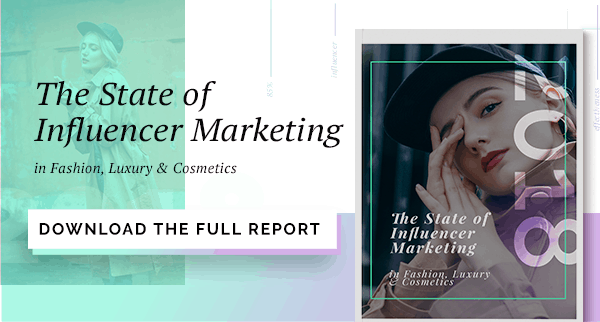Aliza Licht is a marketing and communications executive in the fashion industry with twenty years of experience and a passion for brand storytelling, content creation, digital innovation, and influencer marketing. Licht’s career took off at Donna Karan and DKNY when she created her anonymous Twitter personality called DKNY PR GIRL. DKNY PR GIRL pioneered authentic voices in social media and ultimately captivated the attention of 1.5 million people around the world across platforms.
Over six years, her DKNY PR GIRL persona resulted in many awards, a TED talk, and a book deal. LEAVE YOUR MARK was published in 2015 and has successfully mentored thousands of professionals around the world. With translations in Spanish and Chinese, the advice has become universal. Now, as the executive vice president at alice + olivia she remains dedicated to the intersection of fashion and tech.
We sat down with marketing guru Aliza Licht to dig deep on the ins and outs of influencer marketing and gain perspective on the future of this digital practice for our State of Influencer Marketing 2018 report:

Do you think influencer marketing will continue being as effective in the near future?
Brands that invest in influencer partnerships will find they have hits, misses, and inconsistencies in ROI even when working with the same talent. That said, brands always find a way to work around the problem. When celebrities got too expensive they moved to macro-influencers and when the macro-influencers started lagging in conversion and engagement they moved to micro-influencers. The direct to consumer journey is hardly direct anymore. The roads are meandering!
How can a micro-influencer help a brand?
Micro-influencers have higher engaged communities than macro-influencers. They are also more willing to work with the brand in exchange for product.
Then, would you say brands should still count on macro-influencers?
Yes! Macro-influencers are important for credibility and awareness even though most of their product posts rarely convert to sales. The fashion industry has embraced the micro-influencer because their engagement rate is higher and building these relationships is more efficient for budgets.
What are the benefits of working with the same influencer throughout several campaigns?
Building an authentic relationship, of course. The more the community sees an influencer wearing a brand, the more they feel that the relationship is genuine.
Measurement is still a challenge for fashion brands: What do you think is the problem?
I have always felt that measurement is a double-edged sword. What is the ROI of a multi-million dollar billboard in Times Square? How many people shopped because they saw that? Management has been comfortable not knowing that metric for decades. Digital media is held to a higher standard because “some” of the numbers are readily available but at the same time just because someone didn’t shop a link does not mean they were not influenced to make a future purchase. In addition, there are many KPIs – they are not all sales driven. Awareness and word of mouth matter too. I think management trust in the strategy is imperative because you’re not going to always be able to tie it to sales but that doesn’t mean it wasn’t effective in building brand awareness and equity.
Should fashion brands invest more in influencer marketing?
I think fashion brands should invest in building authentic relationships with a wide range of talent across mediums. Brands need to be multi-hyphenate. Influencer marketing is only one piece of a comprehensive strategy.
Are influencers paid fairly?
Some are overpaid and some are underpaid. I applaud anyone who is a great negotiator.
What do you look for in an influencer?
Great personal style, a strong point of view, and beautiful photography.
What defines a great influencer marketing campaign?
Tapping influencers that make sense for the brand and not because a competitor worked with them! I love the idea of a campaign that tells a story and having a diverse cast of influencers create the messaging in their own unique ways.
Why do you think millennials are so attracted by the power of influencers?
They can relate to them better and they currently trust their opinions more, but that can change too! Nothing lasts forever.
For more on influencer marketing, don’t miss out on our latest report: The State of Influencer Marketing in Fashion, Luxury & Cosmetics.

